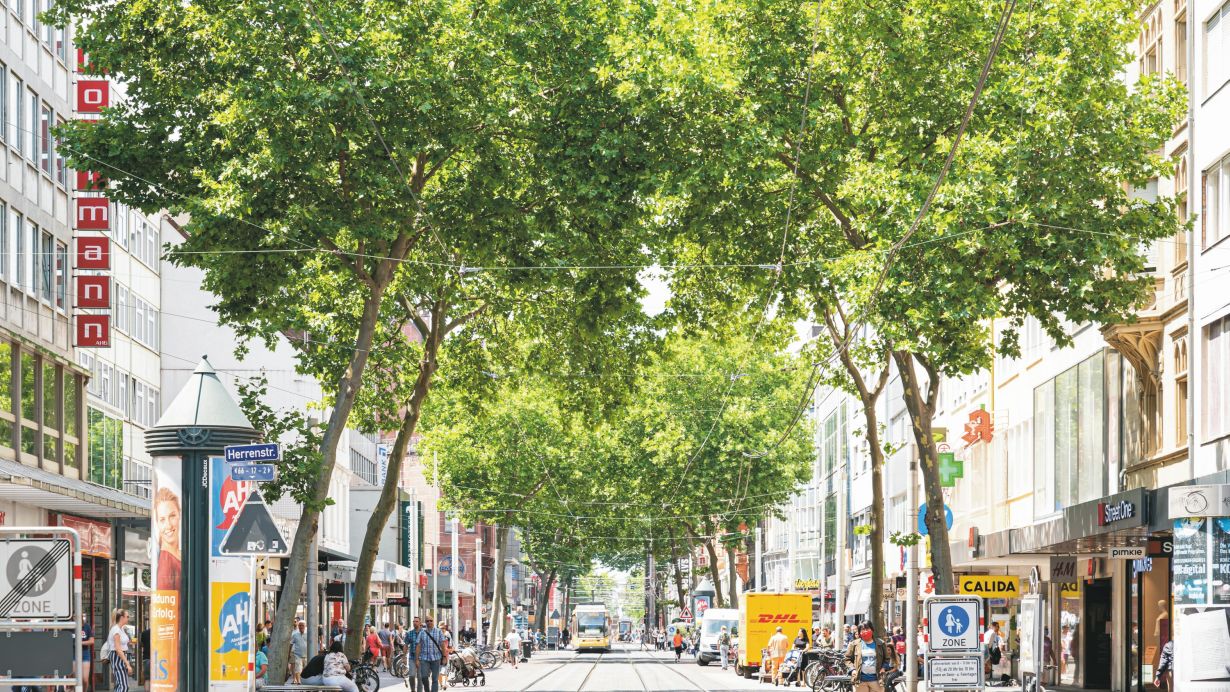
From the Federal Climate Protection Act to alternative drive systems and renewable energies to Fridays for Future and personal behaviors: Many people have long since become aware of the importance of climate protection. With the "Karlsruhe Real-world Laboratory for Sustainable Climate Protection (KARLA)," Karlsruhe Institute of Technology (KIT), the city of Karlsruhe, Karlsruhe University of Applied Sciences, and other partners will move this topic even more into the focus of the society's daily life and study selected local climate protection measures. The project is funded with EUR 1.1 million by the Baden-Württemberg Ministry for Science, Research, and the Arts.
"The real-world labs 'made in BW' act as interfaces between science, industry, politics, and society. Their projects contribute decisively to climate protection. With the KARLA project, KIT is among the leaders in the development of a climate-friendly future. Through concrete transformation experiments with local universities and the city of Karlsruhe, KARLA will make valuable contributions to the climate protection measures needed," says Science Minister Theresia Bauer.
"Real-world laboratories can link global challenges, such as climate change, to daily acting and translate them into adequate local measures," says the President of KIT, Professor Holger Hanselka. "We use the big engineering and specific social sciences potentials of KIT to test climate protection measures together with the citizens and to implement them in society."
"KARLA is another example of our city's good climate for smart developments. Local research institutions and the city cooperate closely and turn the entire city of Karlsruhe into a big laboratory," says the Lord Mayor of the City of Karlsruhe, Dr. Frank Mentrup. And he adds: "The Real-world Lab fits perfectly to the climate protection concept of our city that is based on the participation of all, from individuals to companies. KARLA addresses their hot topics."
Transformation Experiments for Climate Protection
"With KARLA, we will advance sustainable climate protection in Karlsruhe as a model and contribute to sustainable and profound change," says Project Head Oliver Parodi from KIT's Institute for Technology Assessment and Systems Analysis (ITAS). "At the Real-world Lab, we will study, evaluate, and support planned climate protection measures in Karlsruhe and analyze their sustainability aspects in particular." In addition, KARLA will carry out concrete transformation experiments of several years' duration for the implementation of selected activities. Its point of departure is the "Karlsruhe Climate Protection Concept 2030" that was adopted by the municipal council in April 2020. It defines the framework for climate protection measures in the next years.
Together with the city of Karlsruhe, other partners from science, civil society, culture, associations, and citizens, KIT has already selected four subjects of transformation experiments: Climate-friendly business trips, sustainable climate protection in the construction sector, specialists for climate protection, and climate-friendly canteens. "Relevance to climate protection, feasibility in Karlsruhe, suitability for the Real-world Lab, and synergy potentials for the project partners were very important criteria," Parodi explains. In the course of the transformation experiments, subject-specific climate protection measures and processes will be specified in more detail and, upon successful testing, rolled out and modified by the partners.
Karlsruhe as a Real-world Lab
The Real-world Lab is located in the city of Karlsruhe and at selected places of KIT. KARLA builds on the existing Real-world Lab "District Future - Urban Lab" and the "Urban Transition Lab 131" project completed in 2020 and uses existing transdisciplinary infrastructures, competencies, and networks.
Being "The Research University in the Helmholtz Association", KIT creates and imparts knowledge for the society and the environment. It is the objective to make significant contributions to the global challenges in the fields of energy, mobility, and information. For this, about 9,600 employees cooperate in a broad range of disciplines in natural sciences, engineering sciences, economics, and the humanities and social sciences. KIT prepares its 23,300 students for responsible tasks in society, industry, and science by offering research-based study programs. Innovation efforts at KIT build a bridge between important scientific findings and their application for the benefit of society, economic prosperity, and the preservation of our natural basis of life. KIT is one of the German universities of excellence.






